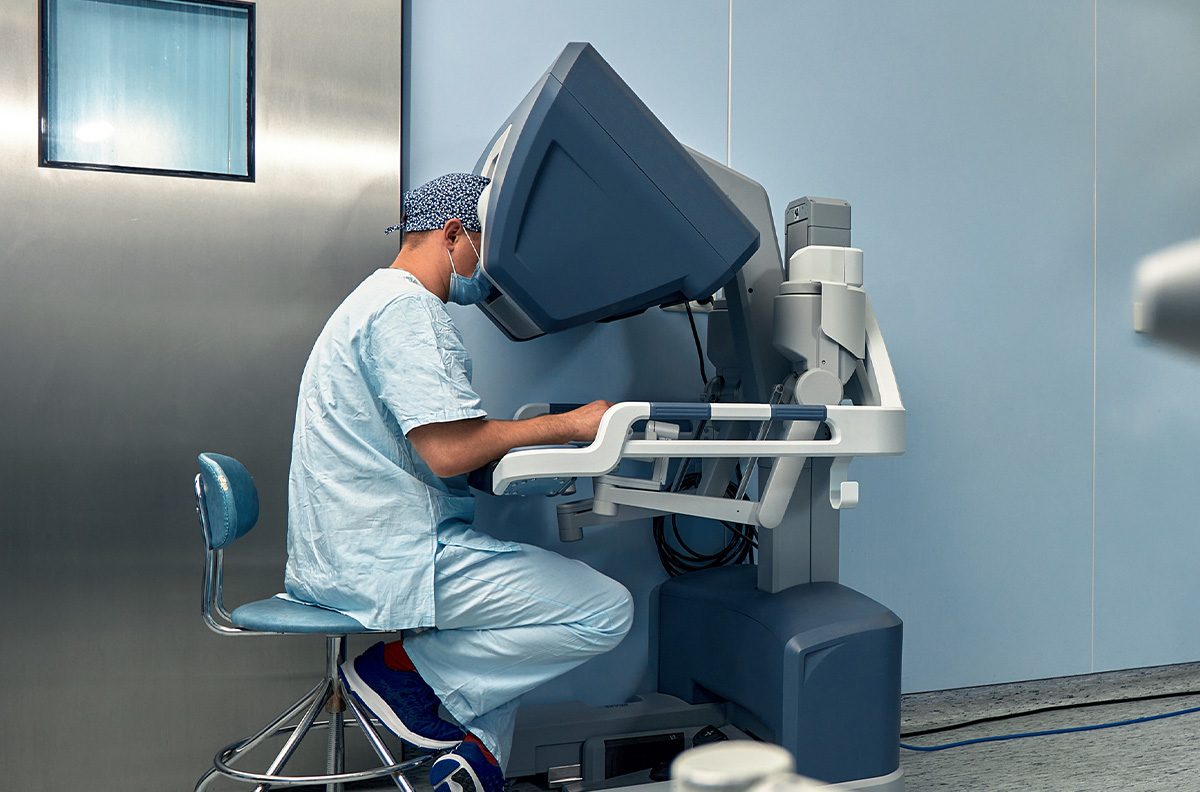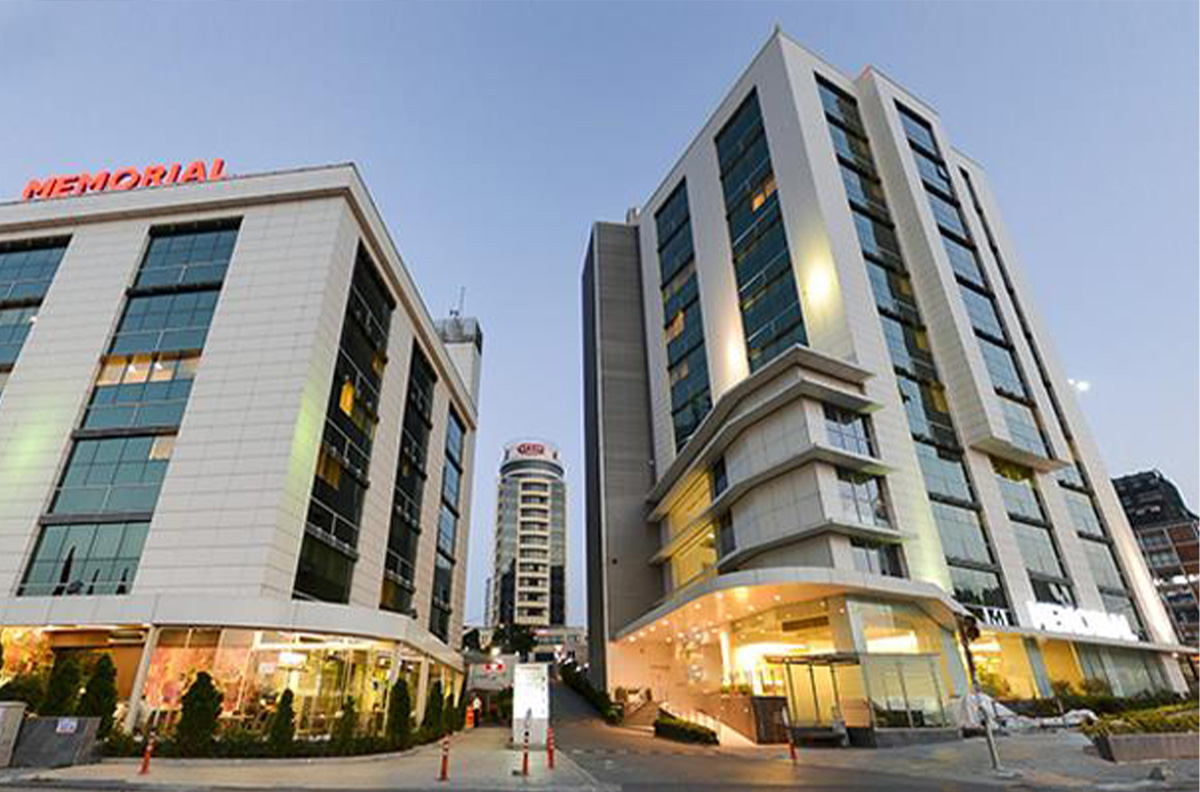Revision Sleeve Gastrectomy
When positive results are not achieved from sleeve gastrectomy, successful revisions can be made. With revision sleeve gastrectomy, you gain another chance to lose weight.
Contents
Overview of Revision Sleeve Gastrectomy
Revision surgery becomes necessary when various complications arise or the desired results are not achieved after obesity surgeries. While many obesity surgeries successfully eliminate excess weight, failure to change lifestyle and dietary habits post-surgery can lead to the need for revision surgery. Revision surgery can correct or alter previous interventions. Failure to meet the predetermined goals post-surgery can be due to technical issues or the patient’s non-adherence to prescribed guidelines. Therefore, identifying the reasons for the initial surgery’s failure and planning the revision surgery accordingly is crucial.
What is Revision Surgery?
Revision surgery is the repetition of a previously performed surgical operation due to unsatisfactory results, complications, or failure. Sometimes, the same procedures are repeated, while other times, different procedures are applied. For instance, sleeve gastrectomy patients may require revision surgery due to leaks or insufficient weight loss. Additionally, some cosmetic surgeries may also require revision, though this is a different application area. Typically, some time is allowed to pass after the initial surgery before revision surgery is considered. During this period, various tests determine the need for revision surgery, and the patient’s overall health status is evaluated. Particularly for obesity patients, situations may arise that require revision surgery after sleeve gastrectomy or gastric bypass. Research to date indicates that only about 10% of sleeve gastrectomy or gastric bypass surgeries require revision. Before deciding on revision surgery for a patient, the outcomes of the initial surgery should be observed. A comprehensive evaluation by an expert surgeon is necessary, and if the results are not as desired, the revision surgery process begins.
When is Revision Surgery Necessary?
Revision surgery is typically performed after an initial surgery to treat obesity. For example, it may be needed after procedures such as gastric banding, gastric bypass, sleeve gastrectomy, or duodenal switch. Each of these surgeries has different procedures, and the conditions requiring revision surgery vary accordingly.
For obesity patients, dietary habits and lifestyle changes must accompany each weight loss method. Revision surgery is usually needed not due to technical errors but because the patient does not adhere to these rules as required. Therefore, patients must implement these changes in their lives before revision surgery. If patients believe they will not regain weight after revision surgery and become lax in dietary and lifestyle changes, weight regain can occur.
Patients with reflux issues who refuse medical treatment or vitamin supplementation, as well as those with eating disorders or substance abuse issues, are not suitable candidates for revision surgery. Situations where revision surgery can be performed include:
Sleeve Gastrectomy Revision Surgery
Sleeve gastrectomy involves removing a portion of the stomach to create a tube-shaped stomach. As the section that secretes hunger hormones is removed, patients feel less need to eat, aiding weight loss. However, failure to adhere to dietary guidelines and maintain the new lifestyle can lead to stomach expansion and weight gain. If weight loss is less than expected or patients return to their initial weight, revision sleeve gastrectomy is necessary.
Sometimes, complications such as expansion, stricture, or leaks can occur after sleeve gastrectomy. Particularly in leak cases, stomach acid or contents leak into the abdominal area, causing abdominal pain. Revision sleeve gastrectomy is required to correct this.
Revision sleeve gastrectomy can be performed with another sleeve gastrectomy, but other methods such as gastric bypass, mini gastric bypass, duodenal switch, or SADI-S surgery can also be used if necessary. Post-revision sleeve gastrectomy, patients have a much higher chance of losing weight compared to the initial surgery. Despite the higher complication risk compared to the first surgery, the success rate is very high.
Gastric Bypass Revision Surgery
As older methods like gastric banding are used less frequently, gastric bypass surgery has become one of the most commonly used methods along with sleeve gastrectomy. Although gastric bypass has a high success rate, it may not always yield the desired result due to the patient’s lifestyle. This is usually due to the widening of the passage between the stomach pouch and the intestine. In such cases, gastric bypass revision surgery narrows the passage, allowing patients to feel full and lose weight. Revision gastric bypass surgery is typically performed using endoscopic methods.
Duodenal Switch Revision Surgery
Duodenal switch surgery is effective for patients who are significantly overweight and have related metabolic diseases such as type 2 diabetes, sleep apnea, and hypertension. The first stage of duodenal switch surgery involves sleeve gastrectomy, which reduces the stomach volume. The second stage is biliopancreatic diversion, where a portion of the small intestine is bypassed, causing a portion of consumed food to be excreted without digestion, aiding weight loss.
Revision surgery may be needed if there is insufficient weight loss, failure to control metabolic issues, or complications arise post-surgery. Revision surgery can reconfigure the stomach tube or small intestine. The second surgery usually resolves issues and helps patients achieve the desired outcome.
Post-Revision Surgery Considerations
If weight regain occurs after obesity surgery, the initial surgery is deemed unsuccessful. There are pre-surgery guidelines to follow before revision surgery, and post-surgery guidelines are crucial for the success of the second operation. These guidelines include:
- Strict adherence to doctor’s advice and regular use of prescribed medications
- Compliance with dietary and activity programs
- Gradual start and increase of physical activities
- Regular wound care and maintenance of hygiene
- Limitation of smoking and alcohol consumption due to their adverse effects on weight and recovery
- Seeking psychological support if necessary for the transition period
- Timely completion of follow-up examinations
- Comprehensive patient education about the process and immediate consultation with a doctor if any issues arise
While each of these points is critical, paying attention to dietary habits and making the recommended lifestyle changes are the most important aspects post-revision surgery. To ensure the success of your revision surgery, adhere to all these guidelines diligently!
Risks of Revision Surgery
Revision surgeries in obesity treatment are riskier compared to the initial operation. While complications occur in 1-2% of patients after the first surgery, they occur in 3-4% of patients post-revision surgery. Nevertheless, the success rates for both initial and revision surgeries are between 96% and 99%. The risks associated with obesity surgery and revision surgery are not greater than the risks of the obesity condition itself. In other words, the risk of serious health problems due to obesity is higher than the risk of complications from obesity surgery. Therefore, it is crucial for patients to undergo obesity surgery to achieve a better and healthier life.
Costs of Revision Surgery
Like all surgeries, the cost of revision surgery is influenced by various factors. Each patient’s needs differ. Factors such as the reason for revision surgery, the procedure to be followed, the patient’s overall health condition, hospitalization duration, clinic quality, and the experience of the specialist surgeon all affect the cost of revision surgery. Geographic location also plays a role in cost differences. For example, revision surgery is more common in the Istanbul region, offering a range of price alternatives. The focus should be on the expertise and experience of the surgeon rather than the cost. Ensuring you are in reliable hands will give you confidence in achieving the desired outcomes.
For comprehensive information about obesity surgery, and to learn about the necessary procedures for both sleeve gastrectomy and gastric bypass revision surgery, you can contact us to book an appointment.







